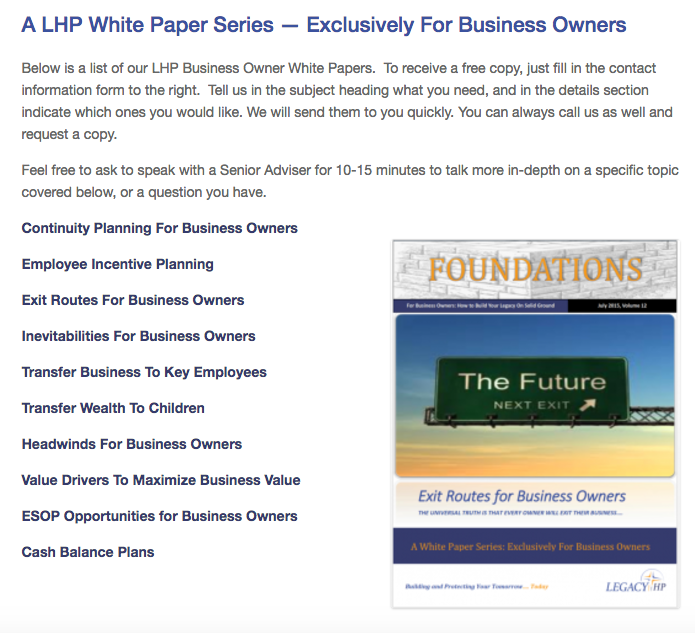When an owner decides to financially motivate a key employee (or management in general), his first question should be, "Can this employee increase the value of my business in a measurable way?"
If the employee in question is a sales manager and the answer yes, then the owner designs an incentive plan to motivate the sales manager to behave in a way that fosters an increase in business value. This may seem elemental, but it is not. Too often we see stock awarded to a sales manager when a cash-based plan directed at increasing sales is not only more effective but also more appreciated.
Let’s look at how one owner solved the problem of matching the incentive to his desired result.
During an annual performance review, Tom Sugar’s Chief Operating Officer expressed an interest in owning part of the company. Tom was really not interested in taking on a co-owner because he eventually wanted to transfer his company to his daughter. He didn’t want to sell or bonus stock but he didn’t want to lose his key employee. Tom was at an impasse. His CPA had told him that it rarely made sense to mix ownership among family and employees. On the other hand, Tom’s COO wanted the look, the feel, and financial rewards of stock ownership.
Tom wanted a way around this impasse. Tom’s advisors suggested that, instead of ownership and instead of just a cash bonus, Tom create a Phantom Stock Plan.
A Phantom Stock Plan can help meet both the needs of the key employee and of the owner, because it gives employees something that looks like stock, grows in value like stock, and can be turned in for cash just like stock, but is not stock.
As employees strive to make the company more valuable, they make their interest in the Phantom Stock Plan more valuable. Typically, phantom shares corresponding to shares of stock—but not representing actual ownership—are allocated to the participating employees’ accounts. As the value of true stock increases, so does the value of the phantom stock. Any dividends paid on the stock are credited to the employee's account. When the employee terminates his employment, the company typically pays him the per share equivalent value of each of the phantom shares vested in his account. The amount paid is deductible to the company.
The success of a Phantom Stock Plan depends on careful design of vesting, forfeiture, payment schedules and funding devices. The benefit formula used in Phantom Stock Plan is the value of the company’s stock.
Phantom Stock Plans also work well when the key employee does not want to be an owner. This is a much more common situation than owners think. Many employees are employees because they want to be employees. They may not want the risk and stress of ownership. Phantom stock gives these employees the look, feel, and some of the financial rewards of ownership, with less risk.
Another suitable situation for the Phantom Stock Plan is when the owner wants to reward a long-term employee who has contributed to the growth and value of the company. This is most appropriate when the employee is within ten years or so of retirement. In this case, it simply makes no financial or tax sense to sell stock to employees when, within a relatively short period of time they are going to turn around and sell it.
Take care and have a good day,
Michael
ABOUT LEGACYHP: Our passion is our mission -- To position our clients into a positive, energized, posture -- within your businesses and within your lives -- So that you manage change confidently, take decisive action, and enjoy life's journey Today... while you enjoy building your Legacy for Tomorrow.
Notice: The information contained in this article is general in nature and is not legal, tax or financial advice. For information regarding your particular situation, contact an attorney or a tax or financial advisor. The information in this newsletter is provided with the understanding that it does not render legal, accounting, tax or financial advice. In specific cases, clients should consult their legal, accounting, tax or financial advisor. This article is not intended to give advice or to represent our firm as being qualified to give advice in all areas of professional services. Exit Planning is a discipline that typically requires the collaboration of multiple professional advisors. To the extent that our firm does not have the expertise required on a particular matter, we will always work closely with you to help you gain access to the resources and professional advice that you need.



